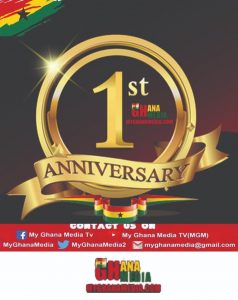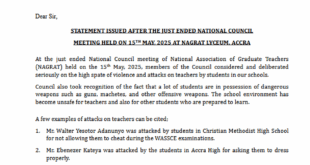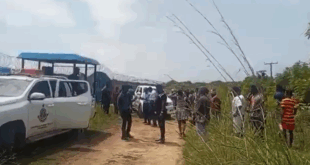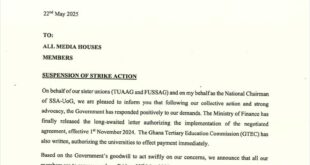From November 1, this year, tricycles, popularly known as “aboboyaa”, will not be allowed to operate on highways and major roads in the Greater Accra Region, including the Accra-Tema Motorway.
The Greater Accra Regional Minister, Mr Henry Quartey, who announced the directive at the launch of the Operation Clean Your Frontage in Accra last Friday, said, however, the ban on tricycles plying the Accra-Tema Motorway took immediate effect.
He said the tricycles would be restricted to their registered metropolitan, municipal and district assemblies (MMDAs).
A one-week grace period would be given after the creation of public awareness by the assemblies, the regional minister added.
Mr Quartey noted that the measure was part of the Greater Accra Regional Coordinating Council’s (GARCC) moves to ensure sanity on the roads.
In line with that, the GARCC was liaising with the Driver and Vehicle Licensing Authority (DVLA) to set up zonal registration centres in the assemblies to register all tricycles operating in the region.
The ban is in line with the road traffic regulations banning the use of tricycles, popularly known as “aboboyaa” on highways and principal streets.
Regulation 128 (1-4) of the Road Traffic Regulations 2012, states inter alia that: “The licensing authority shall not register a motorcycle to carry a fare-paying passenger.”
Nuisance
Mr Quartey said tricycles and motorcycles were causing a lot of nuisance on the highways and other major roads in the region.
Already, there had been a series of meetings with the heads of the tricycle operators to sensitise them to the new policy, he added.
Also, he instructed that no motorcycle should carry more than two persons, while riders and pillion riders must wear helmets.
Mr Quartey further indicated that as part of efforts to reduce cases of robbery in the region, the RCC was collaborating with the Ghana Police Service to clamp down on all unlicensed motorcycles and also regularise their operations.
“It is my fervent hope that at the end of the day we would have a cleaner Accra and healthier residents, enforcement of law and order, decongested streets with better traffic flow; traders selling at designated places and more disciplined residents.
“In addition, business, investment and tourism will thrive,” Mr Quartey stated.
Stakeholder engagement
Prior to the development of the new policy, the GARCC, in August, this year, met stakeholders from sectors including the Transport Unions, Ministry of Roads and Highways, Waste Management Service Providers, Ghana Union of Traders Association and to draw conclusions for a bye-law that will revive and ensure strict compliance and enforcement of the regulations.
Cape Coast
Also, the Cape Coast Metropolitan Area (CCMA) has banned persons below 25 years from riding tricycles, particularly, “Pragyia” or aboboyaa” from Monday, November 15, this year.
A statement signed by Management of the CCMA, said the directive which was “provided by law” and other related directives, were taken at a meeting of the Cape Coast Metropolitan Security Council on September 15, this year.
The CCMA also restricted their movement, saying, “Unregistered tricycles and unlicensed riders are banned from operation. All tricycles are restricted from using the Accra-Takoradi Highway and their operations should be between the hours of 6 a.m. and 5 p.m. daily only.”

Congratulations
#MyGhanaMediaNetwork@1year
Source: Graphic.com.gh


Send your news stories to myghanamedia@gmail.com and Chat with us via WhatsApp on +233 200818719
 MYGHANAMEDIA.COM Best Source Of Latest News
MYGHANAMEDIA.COM Best Source Of Latest News




